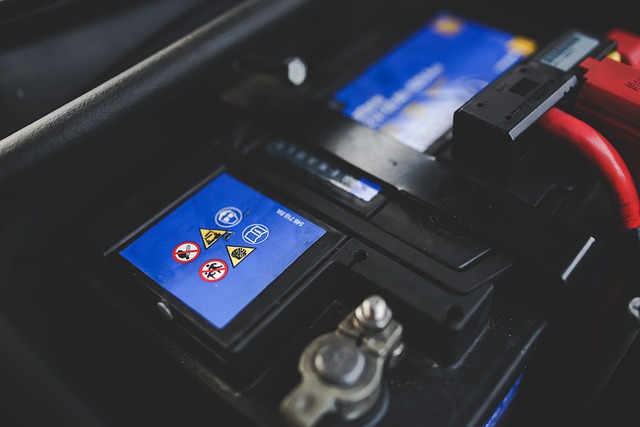
Farasis Energy supports research in complexity reduction for innovative battery systems
The development of structural battery packs can increase both the gravimetric and the volumetric energy density of batteries to achieve efficiency increases of up to 20 percent and enables faster time-to-market whilst reducing the number of components needed.
In addition, a structural battery pack features functions formerly realized by the vehicle chassis, such as providing stiffness and strength or absorbing crash energy. A higher integration level of cells can support the mechanical efficiency of the battery. This can be done by directly integrating cells into a pack without the use of modules, the so-called cell-to-pack concept which is used in structural battery systems.
The federally funded project PEAk-Bat aims to research such novel approaches for the virtual validation of battery systems to reduce the number of battery tests in the development process thus reducing errors that are crucial for the subsequent production steps and to cut prototype costs.
This initiative started recently and is scheduled for 3 years. Within this period, in addition to the Chair “Production Engineering of E-Mobility Components” (PEM) at RWTH Aachen University and Farasis Energy Europe, other well-known industrial companies are combining their expertise.
The project is supported by Farasis Energy Europe with the analysis and evaluation of different battery systems as well as requirements for future battery systems. The company is also responsible to analyze the manufacturing processes of structural battery systems to reduce testing efforts.
Farasis Energy Europe is part of the federally funded project PEAk-Bat which researches innovative test methods and developments to reduce effort for future structural battery systems whilst increasing efficiencies and enabling faster time-to-market.
In addition to the Chair “Production Engineering of E-Mobility Components” (PEM) at RWTH Aachen University, other well-known partners such as Ford, Trumpf, TÜV Rheinland Automotive Component Testing, SCIO Technology and ACTS Advanced Car Technology Systems are involved in this 3-year initiative.
Structural battery systems increase efficiencies and time-to-market at lower costs
“A structural battery system substitutes the basic tripartite structure with a two-tier-structure”, says Dr. Stefan Bergold, General Manager at Farasis Energy Europe. “The tripartite structure consists of cells built into modules, modules built into packs. Using the two-tier-structure, the module level can be substituted by integrating the battery cells directly into the pack housing; the so-called cell-to-pack approach.”
In addition, a structural battery pack features functions formerly realized by the vehicle chassis, such as providing stiffness and strength or absorbing crash energy. A higher integration level of cells can support the mechanical efficiency of the battery.
This approach can increase overall efficiencies; both gravimetric energy density by up to 15 percent and volumetric energy density by up to 20 percent. At the same time, it reduces the number of components and subsequently costs.
A structural battery system is now to be developed as a demonstrator within the framework of “PEAk-Bat”.
Novel approaches for virtual validation to reduce errors and costs
However, the project goes beyond this demonstrator. It aims to research novel approaches for the virtual validation of battery systems to reduce the number of battery validation tests in the development process and to cut prototype costs.
It therefore intends to establish a methodology for evaluating the need for testing when modifications are made to battery systems. On this basis, several demonstrators and test rigs of structural battery systems will be set up, test methods for cell safety will be validated and various safeguard tests will be performed.
“Early validation with the help of artificial intelligence can reduce errors that are crucial for the subsequent production steps and lower prototype costs,” says Konstantin Sasse, who is responsible for the project at the PEM Chair. “This is made possible by reducing test times, which results in faster development of new types of battery systems and thus earlier market entry,” adds PEM senior engineer Christian Offermanns.
Researching future battery system requirements and analyzing manufacturing processes
“Farasis Energy Europe is involved in two working areas to support this initiative”, states André Gronke, Head of Overseas Product Development of the company. “Following a holistic Systems Engineering approach, analyzing the requirements of future battery systems both from a customer and regulation perspective is an important first step. On top we support the evaluation of different concept approaches with our broad experience from global automotive and non-automotive customer projects. Secondly, we’re involved in the manufacturing process analysis and optimization for structural battery systems.”
He continues: “Together with the project partners, we develop evaluation criteria for the assessment of battery systems based on different applications, e.g., manufacturability, integration, re-use/ repair capability, supply chain aspects, logistics and costs. Here, we benefit from the diversity of the project partners, representing big companies and start-ups, including an OEM, a toolmaker, an institute for accreditation of processes, testing and certification as well as a cell and battery manufacturer.”
Farasis contributes its experience and expertise in global trends and evaluates the concept of design space derivatives in relation to overall system integration.
Another involvement is the production analysis of structural battery systems. Farasis evaluates process dependencies for the producibility of structural battery systems (cell and system), investigates different state-of-the-art and future construction methods of battery systems and their potential. Also related to battery manufacturing is the necessity of testing during the production process, both for characterization purposes and to avoid that a product violating the aligned specification can reach the customer’s factory. Reducing and simplifying the efforts will optimize production time, factory space requirements and overall costs.
Initiatives like PEAk-Bat are becoming more important to achieve global CO2 emission targets and enable energy storage systems like batteries to become an alternative to fossil fuels, which are becoming scarce. “In the transport sector, electrified vehicles are becoming more popular as a means of reducing the carbon footprint”, states Bergold. “One of the biggest challenges of electromobility are higher costs compared to conventionally powered vehicles and the PEAk-Bat initiative could be one asset to reduce costs whilst increasing efficiencies. We are proud to contribute to this initiative with our expertise as a leading developer and producer of high-performance lithium-ion battery technology and pouch cells for electric mobility and other energy storage applications.”












